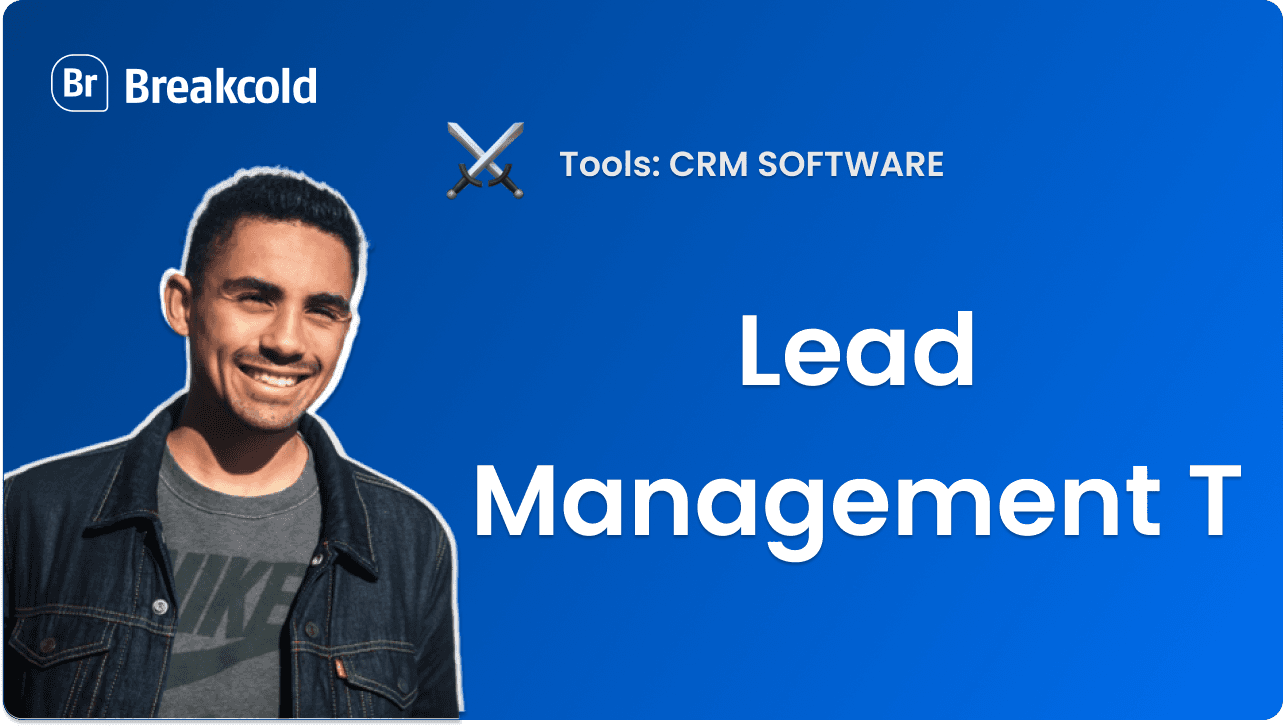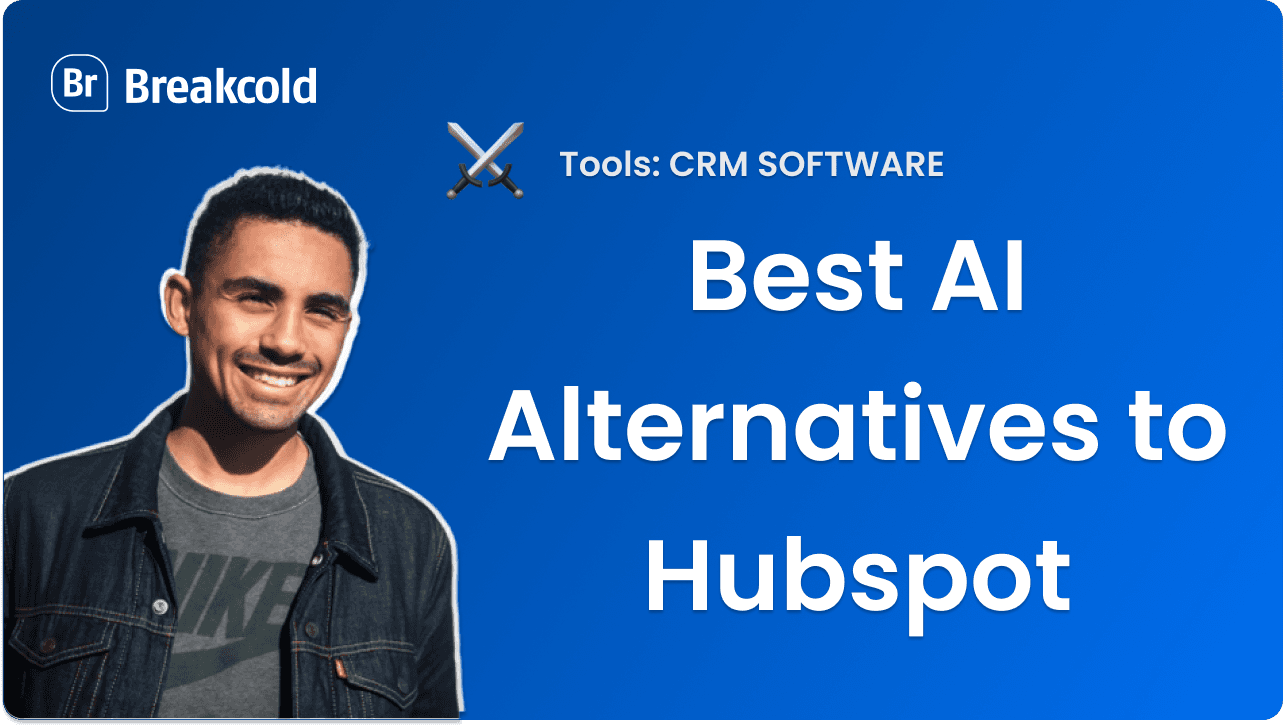
Hubspot vs Close CRM: Which CRM is the Best?
In today's fast-paced business environment, having a reliable CRM (Customer Relationship Management) system is crucial for companies of all sizes. Two popular options that often come up in the CRM conversation are HubSpot and Close CRM. Both systems offer a wide range of features and functionalities, but which one is the best? In this article, we will explore the pros and cons of both HubSpot and Close CRM, compare their pricing models, examine their integrations, and ultimately help you determine which CRM is the best fit for your business.
Pros and Cons of Hubspot and Close CRM
1.1 - Pros of Hubspot
One of the biggest advantages of using HubSpot as your CRM is its robust suite of marketing and sales tools. From lead generation to customer engagement, HubSpot offers a comprehensive platform that can streamline your marketing and sales efforts. With HubSpot, you can easily create landing pages, email campaigns, and social media posts to attract and nurture leads. The platform also provides powerful analytics and reporting features, allowing you to track the success of your marketing campaigns and make data-driven decisions.
Additionally, HubSpot's user-friendly interface and intuitive design make it easy for teams to onboard and navigate the system. The platform offers extensive documentation, training resources, and a supportive community, ensuring that users can quickly become proficient in using HubSpot to drive their business growth.
However, it's important to note that HubSpot's pricing can be on the higher end, especially for small businesses with limited budgets. While the platform offers a free version with basic features, the more advanced functionalities come with a cost. It's essential to carefully evaluate your business needs and budget before committing to a HubSpot subscription.
Furthermore, some users have reported that the system can be overwhelming at times, with an abundance of features and options that may not be necessary for every organization. It's crucial to take the time to customize HubSpot to fit your specific requirements and avoid getting lost in the sea of possibilities.
1.2 - Cons of Hubspot
On the other hand, Close CRM is known for its simplicity and focus on sales. The system is specifically designed to help sales teams streamline their processes and close deals more efficiently. Close CRM offers a clean and intuitive interface, making it easy for salespeople to navigate and find the information they need quickly.
In addition to its user-friendly design, Close CRM also offers email automation features and a built-in calling system. This allows salespeople to connect with prospects seamlessly and track their interactions within the CRM. The email automation features enable personalized and timely communication, ensuring that no leads fall through the cracks.
However, some users have found that Close CRM lacks some of the advanced marketing features that HubSpot offers. If your business heavily relies on marketing automation, lead nurturing, and advanced segmentation, Close CRM might not provide the same level of capabilities as HubSpot. It's important to assess your marketing needs and determine whether Close CRM can adequately support your strategies.
Additionally, the reporting and analytics capabilities of Close CRM may not be as robust as those of HubSpot. While Close CRM provides basic sales analytics, it may not offer the same level of depth and customization options as HubSpot. If detailed reporting and advanced analytics are critical to your business, you may need to consider whether Close CRM can meet your requirements.
1.3 - Pros of Close CRM
Close CRM offers a flexible pricing structure that caters to businesses of all sizes. Whether you're a small startup or a large enterprise, Close CRM has plans that can accommodate your needs without breaking the bank. This affordability makes Close CRM an attractive option for businesses looking to implement a CRM system without a significant financial burden.
Moreover, Close CRM's focus on sales functionality makes it a great choice for sales teams looking to optimize their processes and improve their conversion rates. The system provides features such as pipeline management, deal tracking, and task automation, enabling salespeople to stay organized and focused on closing deals. Close CRM also integrates with popular communication tools like email and phone systems, ensuring seamless communication and collaboration within the sales team.
Close CRM also offers a range of integrations with other business tools, allowing you to connect your CRM with your existing tech stack. This integration capability enables you to leverage the data and insights from other systems to enhance your sales processes and make informed decisions.
1.4 - Cons of Close CRM
Although Close CRM excels in sales-centric features, it may not offer the same level of marketing capabilities as HubSpot. If your business heavily relies on marketing automation and advanced lead nurturing, Close CRM might not be the ideal choice for you. While Close CRM does provide basic email automation features, it may not have the same breadth and depth of marketing tools as HubSpot.
Furthermore, Close CRM's reporting and analytics capabilities may not be as extensive as those of HubSpot. While you can track sales metrics and performance within Close CRM, the level of customization and granularity in reporting may be limited. If detailed sales analytics and comprehensive reporting are critical to your business, you may need to explore other CRM options or consider integrating Close CRM with additional analytics tools.
1.5 - Key Differences between Hubspot and Close CRM
While both HubSpot and Close CRM offer valuable functionalities, it's important to highlight some key differences between the two systems. HubSpot provides a more comprehensive platform that covers both marketing and sales aspects. With HubSpot, you can manage your entire customer journey, from attracting leads to closing deals and nurturing customer relationships.
On the other hand, Close CRM focuses primarily on sales features and optimization. It provides a streamlined and efficient solution for sales teams to manage their pipelines, track deals, and communicate with prospects. Close CRM's simplicity and sales-centric approach make it an excellent choice for businesses that prioritize sales efficiency and conversion rates.
This means that if your business requires extensive marketing automation and lead nurturing capabilities, HubSpot might be the better choice. HubSpot's robust marketing tools and comprehensive platform can help you create and execute sophisticated marketing campaigns. However, if your main priority is sales optimization and efficiency, Close CRM might be the more suitable option. Close CRM's focus on sales functionality and affordability make it an attractive choice for businesses looking to streamline their sales processes.
How does HubSpot pricing compare to Close CRM?
2.1 - HubSpot Pricing
When considering HubSpot as your CRM solution, it's essential to evaluate the pricing options available. HubSpot offers various pricing plans, including a free option for basic CRM functionality. However, more advanced features and capabilities come at a higher price point, with different tiers that cater to different business needs.
2.2 - Close CRM Pricing
Close CRM also offers a range of pricing plans designed to meet the needs of businesses with varying budgets and requirements. The pricing of Close CRM is generally more affordable than HubSpot, making it an attractive option for small and medium-sized businesses.
2.3 - Pricing comparison
When comparing the pricing of HubSpot and Close CRM, it's crucial to consider your business's specific requirements and budget. While HubSpot may be more expensive, it offers a wider range of features that may be necessary for certain businesses. Close CRM, on the other hand, focuses on providing cost-effective solutions tailored to sales teams.
How do HubSpot integrations compare to Close CRM?
3.1 - HubSpot integrations
One of the advantages of using HubSpot is its extensive integration capabilities. HubSpot seamlessly integrates with various popular marketing, sales, and customer support tools, allowing businesses to create a connected ecosystem of software that meets their specific needs. Whether you need to connect your CRM with your email marketing platform or sync your customer data with your helpdesk software, HubSpot offers a wide range of integrations to customize your CRM experience.
3.2 - Close CRM Integrations
Close CRM also offers integrations with popular third-party tools, focusing primarily on sales-related integrations. While Close CRM might not offer the same breadth of integrations as HubSpot, it provides essential integrations with tools like email automation platforms and calling systems that are crucial for sales teams.
Which one is the Best for You?
4.1 - The Best for Salespeople
If your business revolves around sales, Close CRM could be the better choice for you. Its sales-centric functionalities, including email automation and built-in calling, can greatly enhance your team's productivity and efficiency.
4.2 - The Best for Consultants
For consultants and agencies that require advanced marketing capabilities, HubSpot might be the more suitable option. With its comprehensive marketing and sales features, HubSpot can help you streamline your client acquisition and engagement processes.
4.3 - The Best for Digital Marketing Agencies
If you run a digital marketing agency, HubSpot's all-in-one platform might make it the ideal CRM solution for you. With its extensive marketing automation tools and customer engagement features, HubSpot can empower your agency to deliver exceptional results for your clients.
In conclusion, when deciding between HubSpot and Close CRM, it's crucial to consider your business's specific needs and priorities. While HubSpot offers comprehensive marketing and sales functionalities, Close CRM focuses on sales optimization and efficiency. Additionally, pricing and integrations play a significant role in determining the best CRM for your business. By carefully evaluating these factors, you can make an informed decision and choose the CRM that will help you achieve your business goals.





































































![The 8 Best Social CRM Software in 2025 [Comparison]](https://framerusercontent.com/images/RYHyYapdgIi83BEWtMdX418.png?width=1280&height=720)
![The 6 Best LinkedIn CRM in 2025 [Comparison]](https://framerusercontent.com/images/Luywfni7ZKjb19yghbhNPy4I4qQ.png?width=1280&height=720)
































































































































